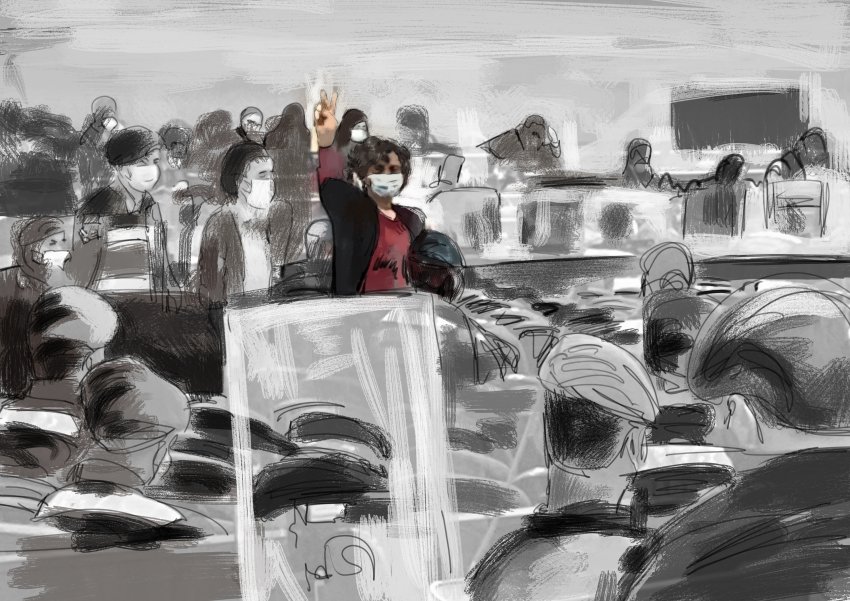
The first hearing of the Kobanî trial started in Turkey’s capital, Ankara, on April 26.
Facing trial are 108 defendants from the Peoples' Democratic Party (HDP), on charges arising from the 2014 “Kobanî protests”. If found guilty, they face 38 life sentences each.
Islamic State (ISIS) laid siege to the Kurdish city of Kobanî in northern Syria in September–October, 2014 while the Turkish government refused to allow anyone to cross the border to help defend the city.
The HDP Central Executive Board called on people via social media to join protests against ISIS and against the Turkish government’s embargo. The demonstrations were met with violence. Official figures say 37 people died — most of them protesters.
The HDP members were subsequently charged in 2016 with 37 cases of homicide, and disrupting the unity and territorial integrity of the state.
This is an abridged version of a report published by Bianet, which is covering the trial.
* * *
Before the hearing, HDP co-chairs Mithat Sancar and Pervin Buldan addressed a crowd of supporters and media in front of the court. The police ordered the gathering to disperse, on the grounds of "social distancing" amid the COVID-19 pandemic.
Sancar told the crowd: “We wanted to come together and make a statement before the hearing, but — as you see — they have put up a wall between us. This is yet another indication that they are afraid of the truth.
"They think that they can drown out our voice, but they are wrong. They thought that they could intimidate us in this trial, but we will also show from now on that they are wrong.”
According to Lawyers for Freedom, which shared updates from inside the building, riot police were seated in the defence attorneys' places and the defence lawyers were not allowed into the hearing.
When they protested, the judge said: “We can hold the trial without you, too”. The attorneys walked out of the courtroom, applauding in protest.
The HDP defendants objected to proceedings continuing without their lawyers present. When the court board announced that the trial would begin with an identity check, the defendants protested.
Alp Altınörs said: "Doing an identity check without the presence of my attorney is not lawful. I have the right to benefit from defence support at every stage of the trial. All of the attorneys of the plaintiffs are here, but our attorneys are not here."
Co-defendant Ayla Akat Ata said: "That this trial has started in this way, without attorneys, proves that it is a political case."
The defendants continued to protest and refused to answer questions.
Imprisoned former HDP Co-Chair Figen Yüksekdağ said: "Our right of defence must be fulfilled. The fact that my right of defence is not acknowledged is an indication of how the court board will hear the case. This is a political attitude."
The court dismissed their protests, but when proceedings continued following recess, the defence attorneys were allowed back into the courtroom.
Defence Attorney Mesut Beştaş told the court: "We want all incidents cited in this file to be brought into light. The attitude of the court so far has made us more concerned about a fair trial."
Before the indictment was read out, Beştaş raised objections, challenging the fairness of the trial, the investigation and the prosecution.
Beştaş, Demirtaş's attorney Mahsuni Karaman and Figen Yüksekdağ’s and Sebahat Tuncel’s attorneys requested that their clients be allowed to address the court to speak to those objections and request the judge’s recusal from the case.
The prosecution argued that the requests should be rejected and the trial should proceed following the reading of the indictments.
The court board moved on to read out the indictment; it ruled that the requests should be rejected, as they did not comply with the procedures, and rejected the request for recusal.
The next hearing is on May 3.